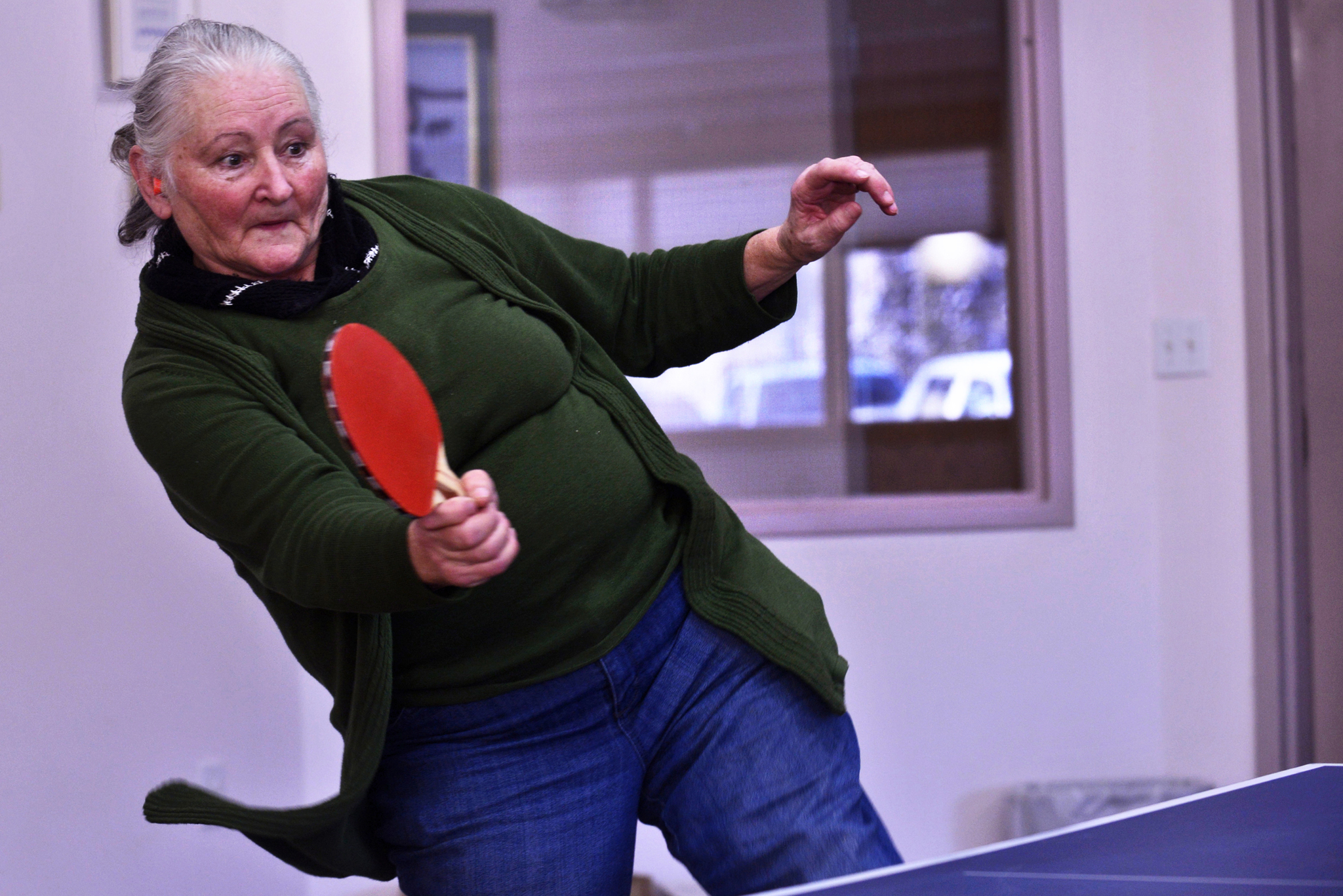This week 13 events occupied participants in the 13th annual Kenai Peninsula Senior Olympics, open to any peninsula residents older than 55.
Cribbage, darts, dominoes, basketball, eight-ball pool, ping-pong, poker and pinochle were among the competitions, which concluded with a medal ceremony Saturday at the Soldotna Senior Center.
“People you don’t see very often come around, and it’s something to do, something to look forward to,” said Jay Norris, a senior who estimated he’d been participating in the games for about eight or nine years.
This year he won a gold medal in the darts competition, among other medals.
Soldotna Senior Center Director Jan Fena said the games draw approximately 130-150 participants every year. The participants come from all of the local senior centers, including Kenai, Soldotna, Sterling and Nikiski. The main goal of the Senior Olympics program is to provide fellowship and opportunities to socialize, as well as something entertaining yet competitive, for the seniors. Fena noted that it can be very easy for seniors to feel isolated during the winter months.
Fena said many of the seniors, and senior centers as a whole, have their own specialties that they are well known for in the Senior Olympics. Nikiski, for example, is known for their pinochle skills; Kenai, for their mean game of bridge; and Soldotna for their skillfulness in ping pong and darts.
The competitiveness of the Senior Olympics should not be downplayed. The seniors who play, play to win, and the ones who win get ranked and rewarded with gold, silver, or bronze medals.
Fena said a committee was established to come up with events and develop a standard set of rules for the different games, which can be played with variations. Bonnie Cain, a senior who last year joined the committee as an organizer, said the group also includes the directors of the four senior centers that participate in the games.
The last event of the week was Wii bowling — a virtual version of the sport played on the Nintendo Wii video game system by swinging motion-sensitive remotes to simulate rolling the ball — held Saturday before noon at the Soldotna Senior Center.
Some of the Wii bowlers had been members of the local senior bowling league, which met regularly for physical bowling on the real lanes of Kenai’s Alaskalanes bowling alley before the business closed in fall 2015. With the next-closest bowling alley in Homer, the senior league has been largely inactive (or at least limited to virtual Wii bowling) since. This January, however, the closed bowling alley was sold to a group of entrepreneurs who plan to re-open it by the fall.
Though many were looking forward to real bowling again, some seniors praised Wii bowling on its own merits.
“Everybody who plays it just loves it,” Olympics competitor Gladys Routh said.
Each of the four senior centers involved in organizing the Olympics has a Nintendo Wii system, allowing them to play a variety of virtual sports via the real movements of a motion-sensitive remote. Even if real bowling returns next year, Fena said Wii bowling might stay on the Olympics agenda as a separate event — for seniors with mobility impairment, the video game doesn’t require footwork, and for those with arm or shoulder trouble it eliminates the swinging weight of the ball.
“As popular as it is, it’s up to the Olympic committee,” Fena said. “But I’d hope they keep it because of how popular it is.”
New events the group might consider for next year include mahjong and the dominoes variant triominoes, which uses triangular tiles, Cain said. Next year’s Senior Olympics may also have an entirely new spin-off event: a summer Senior Olympics focused on outdoor games. Cain said the board is considering the possibility and looking for suggestions of games.
Reach Ben Boettger at ben.boettger@peninsulaclarion.com.

